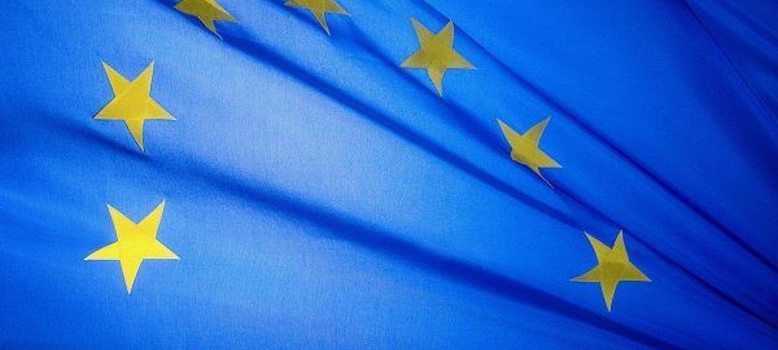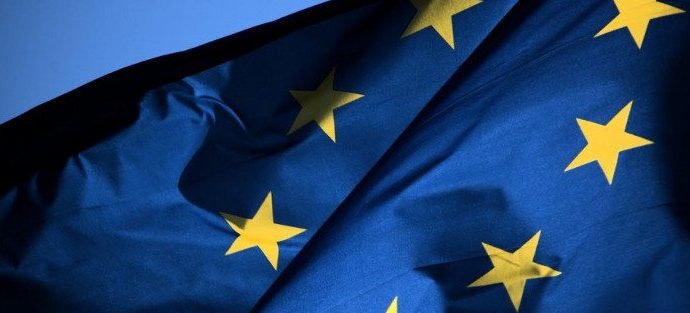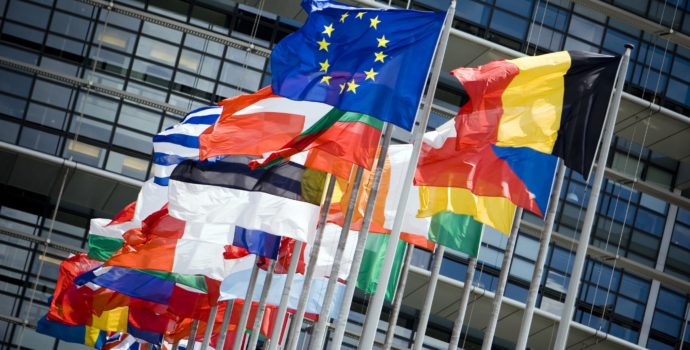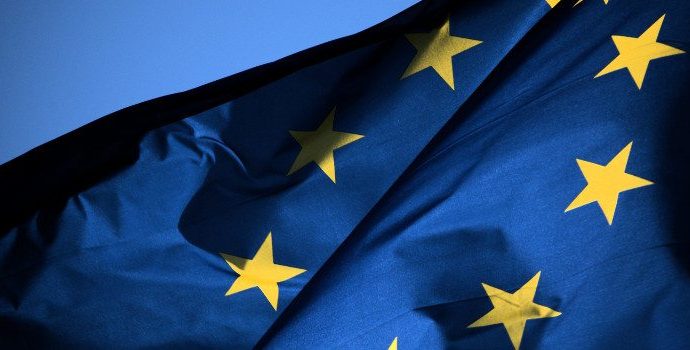European Commission Daily News 25th March

COLLEGE MEETING: Green Deal for Europe: Commission presents actions to boost organic production
The Commission today presented an action plan for the development of organic production. Its general objective is to stimulate the production and consumption of organic products, to increase the agricultural area devoted to organic farming to 25% by 2030, as well as to significantly develop organic aquaculture. Organic production has a number of important advantages: organic crops have around 30% more biodiversity, animals from organic farming enjoy a better level of welfare and consume less antibiotics, organic farmers have higher incomes and are more resilient, and consumers know exactly what they are buying thanks to the EU organic logo. The action plan is in line with the Green Deal for Europe, the Farm-to-Table Strategy and the Biodiversity Strategy. The action plan aims to equip the organic production sector, which is already growing rapidly, with the appropriate tools to achieve the 25% target. It proposes 23 actions articulated around three axes: encouraging consumption, increasing production and continuing to improve the sustainability of the sector – in order to ensure balanced growth of the sector. A press release and a Q&A are available online. You can watch the press conference by Commissioner Wojciechowski on EbS.
Environmental Liability: Commission announces guidelines to identify how environmental damage needs to be prevented and remediated
The Commission adopted today guidelines which clarify the scope of the term ‘environmental damage’ in the Directive on environmental liability. These guidelines will help Member States to better assess in which ways damage to water, land and protected species and natural habitats must be prevented or restored by explaining the scope of each of these categories in detail. They will provide greater legal clarity and harmonisation of its interpretation and application. Commissioner for Environment, Oceans and Fisheries Virginijus Sinkevičius said: “Nature is under severe pressure from human activity and pollution, and halting the loss of biodiversity is a huge challenge for us all. These new guidelines will help towards achieving the objectives of our Biodiversity Strategy and the upcoming Zero Pollution Action Plan by making it clearer when operators are liable for environmental damage that they cause.” The Directive on environmental liability aims at establishing a framework of environmental liability, based on the ‘polluter pays’ principle – operators become thus liable to prevent and restore any environmental damage caused by their activities. An earlier Commission evaluation showed that a lack of common understanding among Member States and stakeholders on the application of the term ‘environmental damage’ was weakening the Directive’s implementation. The notion of ‘environmental damage’ is also closely related to other EU legal requirements, notably in the Birds Directive, Habitats Directive, the Water Framework Directive and the Marine Strategy Framework Directive. The guidelines therefore also contribute to fulfilling the objectives of these laws, as well as of the Biodiversity Strategy by clarifying the links with environmental damage. More information available in this news item.
Reinforcing trust in scientific studies on food products: new rules for more transparency and independence
On 27 March 2021, the Regulation on the transparency and sustainability of the EU risk assessment in the food chain becomes applicable. The Commission’s proposal for this Regulation was adopted in 2019, following a European Citizens’ Initiative. The Regulation’s entry into force does not only mark an important step forward in the modernisation of the EU food safety policy, it is also a great example of the direct political impact of a European Citizens’ Initiative. The new rules will improve the transparency of the EU risk assessment regarding food and cover a wide range of products of great concern for citizens. The Regulation will strengthen the reliability, objectivity and independence of studies submitted to the European Food Safety Authority (EFSA) and give a greater role to Member States in EFSA’s governance. Commissioner Stella Kyriakides, in charge of Health and Food Safety, said: “More transparency on EU scientific work in the area of food will reinforce consumer trust. These new transparency rules directly respond to calls from our citizens. We are putting them in place at a time when the Commission has taken a strong commitment, through our Farm to Fork Strategy, in ensuring greater sustainability so that that the way we produce and consume our food is healthy not just for us, but also for our planet.” To mark the upcoming entry into application of the Transparency Regulation, the European Commission and the Portuguese Presidency, in collaboration with EFSA, will organise a joint celebratory virtual event on Tuesday 30 March 2021, from 10:00 until 12:30 CET. The event will be web-streamed here. A press release is available on Press Corner, as well as a Q&A on the website of DG SANTE.
Speech by President von der Leyen at the High-level Conference ‘Investing in climate action: The Make-or-Break Decade’
Yesterday afternoon, the President of the European Commission, Ursula von der Leyen delivered a speech at the Opening of the High-level Conference ‘Investing in climate action: The Make-or-Break Decade’, in cooperation with the European Investment Bank, via videoconference. President von der Leyen underlined that “the next ten years must be a turning point” in terms of global emissions: “Today, global emissions are still rising. And this has to change as a matter of urgency. We must act now before it is too late. But there is another factor that can make a difference between ‘make or break’. It is how we think about climate action. Climate action is not only a necessity. It is also the greatest economic opportunity of our time.” The President spoke about the new needs but also new opportunities this transformation represents. Europe stands ready to be the driver of this change. She outlined three crucial tasks to tackle in the immediate future: “First, we must ensure the quality of our investment. We should try and maximise the impact of every euro we spend, in terms of environmental impact, but also of job creation and innovation. Second, we must work to mobilise as much private investment as possible. We need an ‘investment revolution’ that goes well beyond the public sector to catch the green opportunities of the 2020s. And third, we must look beyond Europe’s borders, too. We must explore new forms of global cooperation on green finance, towards a climate-friendly economy. Europe will be the first climate neutral continent, but we do not want it to be the only one.” Looking ahead, the President closed her speech by saying: “I want this decade to be the Roaring Twenties of climate action and climate investment. Europe must lead this change. It is our last chance to stop climate change. And it is a once-in-a-generation opportunity to become global leaders in the economy of the future.” The European Green Deal is our roadmap towards climate neutrality and new growth strategy. €280 billion from NextGenerationEU will finance climate action. The full speech is available here, and you can watch it here. Executive Vice-Presidents Timmermans and Dombrovskis, and Commissioner McGuinness also gave speeches at the conference.
Work begins on the Conference on the Future of Europe
The work on the Conference on the Future of Europe has officially started, with the first meeting of its Executive Board yesterday evening, two weeks after the Joint Declaration was signed by European Parliament President, David Sassoli, Portuguese Prime Minister António Costa, on behalf of the Presidency of the Council, and by Commission President Ursula von der Leyen. The Executive Board, composed of representatives from the three institutions, on an equal footing, will oversee the work, process and organisation of the Conference. At the meeting, the Executive Board agreed on a series of essential items needed to get started. The first steps were taken to ensure that citizens can soon start to contribute to the Conference, in particular, via a multilingual Digital Platform. Commission Vice-President for Democracy and Demography, and co-chair of the Executive Board, Dubravka Šuica, said “The Conference will enable citizens from every corner of the EU, and from all backgrounds, to share their ideas, hopes and dreams in shaping their Union’s future. This is a unique and historic moment for citizen engagement in the European Union.” Read the full statement here.
Investment Plan for Europe supports better water supply and waste management services in Portugal
The European Investment Bank (EIB) will provide up to €28.2 million in financing to support the water distribution optimisation investments of Águas do Interior – Norte (AdIN), a company that exclusively provides water supply and waste management services to eight municipalities in the north of Portugal. The project is backed by a guarantee from the European Fund for Strategic Investments (EFSI), the main pillar of the Investment Plan for Europe. Thanks to this EU support, AdIN will be able to carry out its five-year investment programme aimed at improving water supply and waste management services for about 95,000 people. This includes the company’s rehabilitation of water supply systems to reduce water losses as well as the upgrading and rationalisation of wastewater collection and treatment systems to comply with EU and regional environmental requirements. Overall, the investment will help to reduce pollution and contribute to increased resilience against climate-related risks. Commissioner for the Economy, Paolo Gentiloni, said: “This agreement between the EIB and Águas do Interior – Norte, backed by the Investment Plan for Europe, will help to improve water supply and waste management services for the benefit of about 95,000 people in the north of Portugal. This is an important contribution from the European Union to safeguard Portugal’s water resources, which is especially important in the context of increasing climate-related risks.” The Investment Plan for Europe has so far mobilised €546 billion of investment across the EU, of which €14 billion in Portugal. The press release is available here.
Read the European Commission Daily News in full here.




